Description
One of the joys of being a grandparent is discovering that grandchildren often make excellent teachers.
This book offers 52 brief devotionals for grandparents, each built around the idea of lessons learned from grandchildren.
Delia Halverson, a Christian education specialist, is a veteran classroom and workshop leader with more than 20 years’ experience. She has written extensively in the area of religious education and is the author of 32 Ways to Become a Great Sunday School Teacher, How to Train Volunteer Teachers, Leading Adult Learners and My Cup Runneth Over… Devotions for Teachers. She is the author of over fifteen books and is well known for her articles and curriculum writing. She lives in Woodstock, Georgia.
- Paperback : 132 pages
- ISBN-10 : 068765078X
- ISBN-13 : 9780687650781
- Item Weight : 5.1 ounces
- Dimensions : 7 x 0.5 x 5 inches
Excerpt…
Chapter One: LESSONS OF EXPERIENCES AND JOYS
- Lessons of Each Special Day
Scripture: All of you nations, clap your hands and shout joyful praises to God. —Psalm 47:1
Our twin granddaughters learned early on, even before they could talk, to express their joy with clapping. They clapped when they saw someone they knew. They clapped when they accomplished something new. They clapped when a special show came on television. They clapped when their grandfather put their favorite dish on the table. (He cooks the main meals at our house!) And they clapped when we sang praise to God.
When the girls first sat in high chairs for their meals, I began singing a special song to them at breakfast. It uses the words of Psalm 118:24 (NRSV): “This is the day that the LORD has made; let us rejoice and be glad in it.” Even though they did not understand the meaning of the words, they knew that it was a song of joy, and they reacted with their clapping. Even now, when we sing the song, they immediately break out in smiles and cheers accompanied with spontaneous clapping.
Each day with grandchildren is special. I never know just what it will hold. It may be the day that they learn a new word, such as floor or dinosaur. Or it may be the day that they accomplish a special dance step or a complicated karate move. Or it may simply be another day with the same games and toys. But nonetheless, it is special to them, and I’m finding it special to me.
Once we are adults we get hung up in busyness. Life is a rush from one job to another, from one meeting to another, or from one relationship to another. We not only forget to clap for joy over the simple accomplishments, but we forget to recognize each day as a day that God has made and a day that we live for God.
If slowing down with grandchildren does nothing more, it can teach us to find joy in each day. It can teach us that there are ordinary things in life to celebrate, as well as the extra-ordinary. It can teach us an awareness that we have forgotten in our “maturity.” It can teach us to feel unashamed about celebrating with joy and with excitement—celebrating the specialness of today and the specialness of relationships!
Reflect
~ What happened today that you can clap about?
~ Besides clapping, what other ways can you celebrate the joy of a moment?
~ How can you find a way to remind yourself of the many moments that are special?
Pray
God, you have given us days, some routine and some unusual. Help me see the specialness of each day. Help me lose all my reluctance of celebrating your gifts of new days. Amen.
- Day 1 Lessons of Laughter
Scripture: And a little child shall lead them. —Isaiah 11:6c (NRSV)
It is a joy to watch my grandchildren in some of their antics. At times I simply smile inside and try not to burst into laughter, because they would not think it was a laughing matter. Other times I laugh with them, feeling the explosion of endorphins through my body. And then there are times when I laugh until my sides hurt and tears spill over and down my cheeks!
Research indicates that endorphins make a difference in our physical and emotional health. When was the last time you really laughed until the tears ran down your face? Perhaps laughter is one reason children tend to be more physically fit than we adults. It is estimated that children laugh an average of four hundred times a day, while we adults laugh only about fifteen times a day. What a difference! Where did we adults lose it? Why can’t we follow children’s leading and remember to laugh more frequently?
There are other areas where we can follow children’s leadership and make our lives more meaningful. Here are some suggestions:
• Look for the little things: select one square foot of ground, and write down everything you see in that square.
• Start out for a walk with no destination in mind, and let your interest in your surroundings lead you.
• Take off your shoes and splash through the next rain shower.
• Investigate different items in nature just to enjoy their different textures.
• Run in circles with a puppy or a child.
• Fly a kite or hug a tree.
• Ride a bike or open the windows of the car and feel the wind in your face.
• Walk through the grass barefoot, and giggle as the grass tickles your toes.
Most important of all, take the example of children who learn from their mistakes and simply get up and try it again. Bad past experiences cannot be changed. If we don’t use them to learn, then they make us miserable as we continually bring them to mind. Learning from our mistakes makes them worthwhile. Laughing about them buffs the sharp edges, so that we can hold them in our hands and find the kernel of learning inside.
Reflect
~ Count the number of times you laughed in the past twenty-four hours. How can you increase your laughter time?
~ When have you put everything on hold and enjoyed an adventure as you did as a child?
~ What past experience can you use to learn from and laugh about, instead of regretting or cursing it?
Pray
Dear God, through children you give us examples of a joyful life. Help us follow the leading of our children and appreciate all the opportunities of life. Amen.
- Day 2 Lessons of Quiet Times
Scripture: But so many people were coming and going that Jesus and the apostles did not even have a chance to eat. Then Jesus said, “Let’s go to a place where we can be alone and get some rest.” —Mark 6:31
Grandchildren seem to have boundless energy, particularly the younger ones. How often we say, “If I could bottle that energy and sell it, I’d be a billionaire.” Older grandchildren don’t always exhibit their energy, yet they may have the energy to go to a party and dance most of the night away. Which brings me to the lesson I’ve learned from my grandchildren about quiet times. We all need some “downtime.” It may come in the form of exhausted sleep or it may come as a simple time of reflection within ourselves.
As I’ve cared for my little twin granddaughters, I’ve come to recognize that when they become irritable, they are actually tired and are not getting the sleep they need. Their good spirits and happy smiles usually return when they have adequate sleep.
God created our bodies in such a manner that we must have sleep or we will become ill. If God is all-powerful, as we believe, then God could have created us so that we did not need sleep. Consequently I see sleep as a true gift from God. Sleep is our Creator’s way of saying, “Relax; rest in my care and renew yourself for tomorrow.”
Jesus exhibited another way to rest. He often drew away to be by himself and pray. The humanness of Jesus required that time of quiet reflection. When we go day after day without drawing apart to spend quiet time with God, then in essence we are saying that our spiritual lives are stronger than that of Jesus, and that we don’t need renewal as Jesus did. I think not. I think that we have revved up our lives so much that we fool ourselves into thinking we don’t need quiet times. We fill our ears with music, our eyes with images, and our stomachs with food. We fool ourselves into thinking that fullness is good.
After a recent vacation away from grandchildren, I returned to learn again that emptiness is good because it allows us to fill ourselves. On that day I simply sat in a chair and held two grandchildren quietly. We basked in our love for each other. There was no talking, no wiggling, no energy expended. We simply loved and received love.
How like our time with God. Someone has said that time with God is like simply “looking and loving.” We need time without asking God for anything, without complaining to God, without even thanking God. We need time just to be with God and to “look and love.”
Reflect
~ When was the last time you simply spent time with God “looking and loving”?
~ What can you cull from your life in order to have more time to appreciate aloneness with God?
~ How can you help children find time to empty themselves and be filled with God?
Pray
Creator God, thank you for making us with the need for rest. Help me realize that I need the rest, not only for my physical body but also for my spiritual being. Amen.
- Day 3 Lessons of the Wonders of God’s World
Scripture: I often think of the heavens your hands have made, and of the moon and stars you put in place. Then I ask, “Why do you care about us humans? Why are you concerned for us weaklings?” —Psalm 8:3-4
God’s world gives us so many times to wonder and reflect. We take that world for granted, skipping over the violet growing between the cracks in the sidewalk and stepping on the ant that could teach us great lessons of life.
If we pay attention to our young grandchildren we will learn again to wonder over these things. Our older grandchildren discover the wonders of science and human relationships, but we often concentrate on their grades and treat their learning as simply their jobs as students, without taking the time to wonder with them.
With older children we can ask them what they have learned in their classes. As they reflect on their science classes we can wonder with them about the awe-inspiring parts of God’s world. From their English classes we can marvel over our God-given ability to communicate and the beauty of words. From their physical education classes we can marvel over the way that God put us together and how our muscles respond to training.
There are simple references in the Bible that can be recalled as we wonder:
~ When we see the rain on the trees we can quote Psalm 147:8:
[God] fills the sky with clouds and sends rain to the earth, so that the hills will be green with grass.
~ When we watch the ants carrying pieces of food larger than themselves we recall the proverb,
You lazy people can learn by watching an anthill.
Ants don’t have leaders, but they store up food during harvest season (Proverbs 6:6-8).
~ The tulips of the spring remind us of the words of Song of Songs 2:11-12:
Winter is past, the rain has stopped; flowers cover the earth, it’s time to sing. The cooing of doves is heard in our land.
If we read the Bible with the desire to wonder, we will find many more references that remind us of God’s movement in the world and in our lives. Recognizing the wonder of God in our world need not be reserved for young children or for our grandchildren. Many adults need this reminder as we rush through our busy lives.
Reflect
~ What wonder of God’s world did you miss today? yesterday? last week?
~ When can you make a point to share this wonder with your grandchildren?
~ With whom, besides grandchildren, can you share God’s wonder?
Pray
Thank you, God, for all that you have given us in our world. Forgive us for passing by without stopping to wonder. Give us the pause that we need to put all of this awe-inspiring world into perspective. Amen.
- Day 4 Lessons of Rocks
Scripture: Anyone who hears and obeys these teachings of mine is like a wise person who built a house on solid rock. Rain poured down, rivers flooded, and winds beat against that house. But it did not fall, because it was built on solid rock. —Matthew 7:24-25
My grandson, typical of many boys, went through a stage where he collected rocks. However, he went further than most boys in identifying the rocks and sorting them into categories.
When we visited in his home, he was kind enough to let us sleep in his room. As I looked through his rock collection, I was reminded of Jesus’ parable about building a house on a rock instead of on shifting sand.
Jesus was a carpenter, and as a master craftsman he would have understood how foolish it is not to build on a solid rock foundation. During a recent trip to New York City I was fascinated by the skyline of the city. Tall buildings make up the skyline on both ends of Manhattan Island, and there are no tall buildings in the center. When I quizzed our guide, he told me that each end of the island has the deep, solid rock foundation needed for skyscrapers, but that solid bedrock is missing in the middle of the island.
This parable is one of several that Jesus told illustrating the difference between simply knowing what we should do and actually acting on those principles. We can easily learn the ethics of our religious teachings, but unless we dig deep into their meaning and apply our lives to the solid foundations, then we cannot stand firm when the storms of life sweep over us. Knowing something does not necessarily equate to doing it. But by our actions, we show the world that we know how to live a life of love…
Excerpted from Lessons I Learned From My Grandchildrenby Delia Halverson Copyright © 2008 by The United Methodist Publishing House. Excerpted by permission of Abingdon Press. All rights reserved. No part of this excerpt may be reproduced or reprinted without permission in writing from the publisher.
Excerpts are provided by Dial-A-Book Inc. solely for the personal use of visitors to this web site.

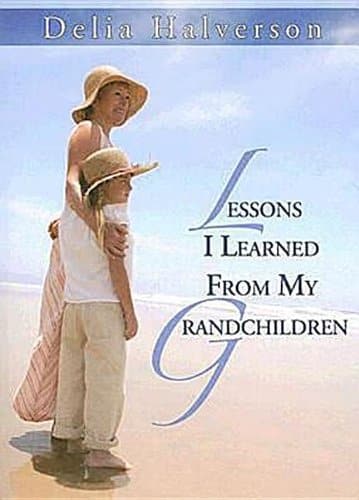


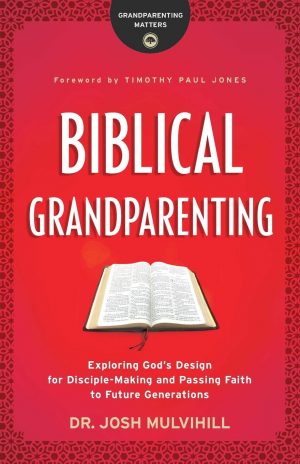
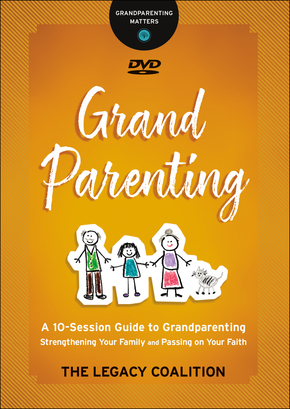
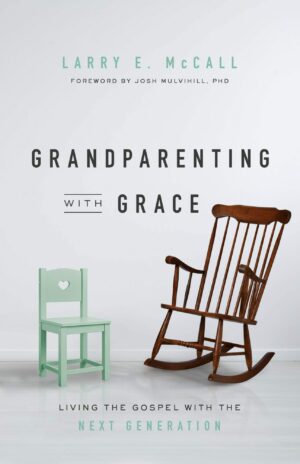


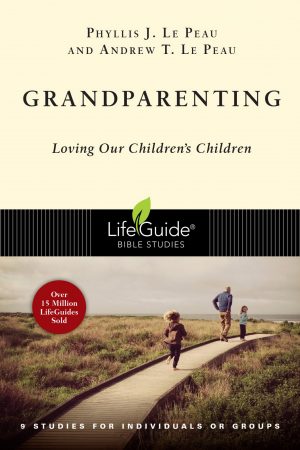
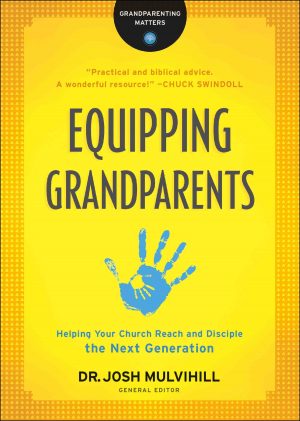





Reviews
There are no reviews yet.